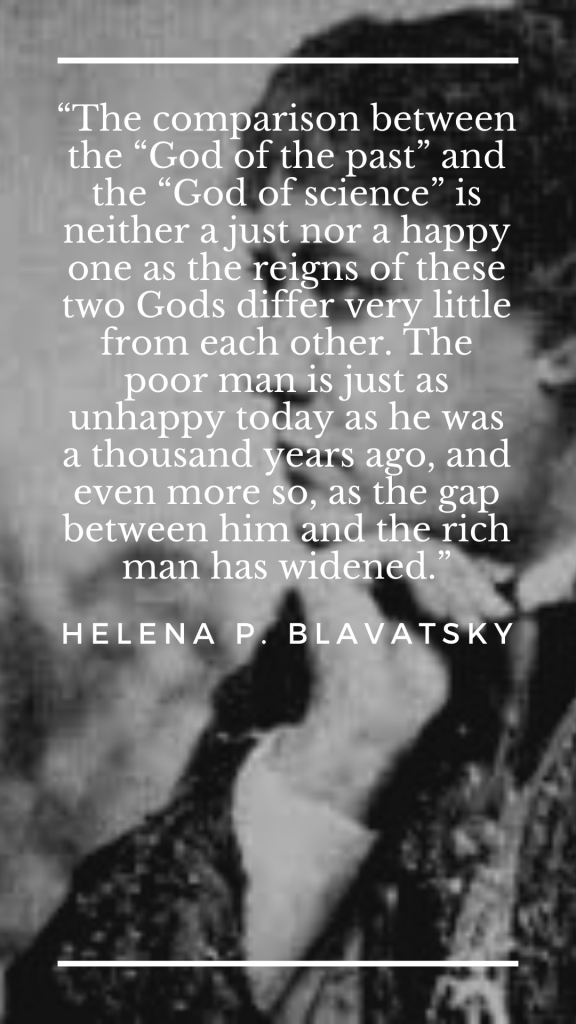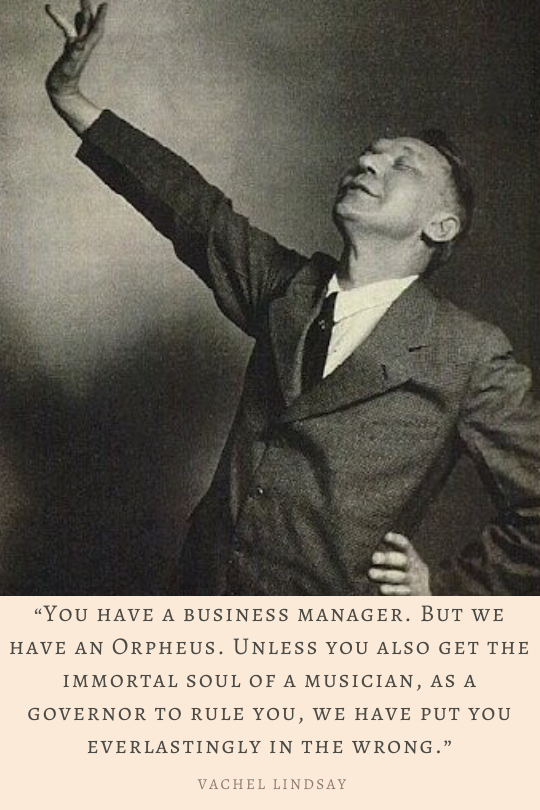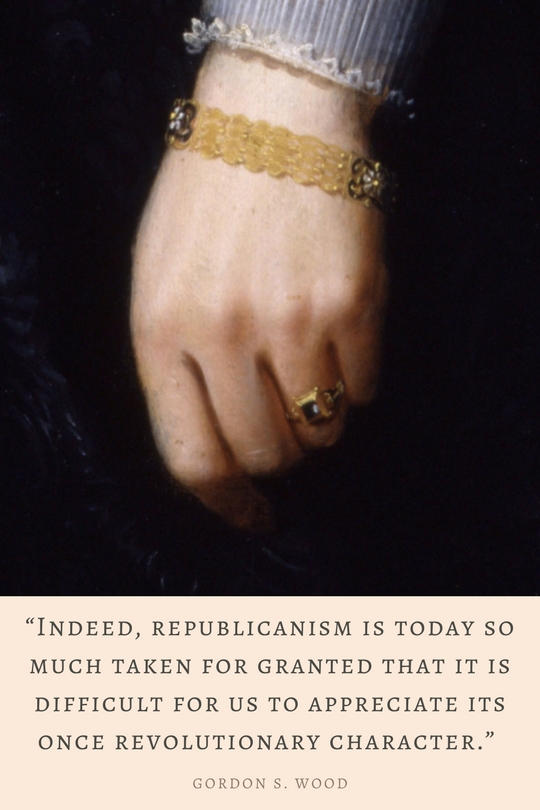Helena Blavatsky Critique of the French Revolution of 1789, Material Progress and the Rich

In an excerpt from this Parisian paper, Le Lotus (Paris, Vol. I, No. 6, Sep 1887), Helena P. Blavatsky speaks about the falsity of fraternity in the French Revolution of 1789, rails against material (industrial) developments, and the conditions of the poor. The poor and child factory workers labor and are sacrificed for progress. Theosophists aim at a social revolution, but the revolution of 1789, has shown to be unethical and a false fraternity. This critique is consistent with H.P.B.’s views on Socialism and Communism, the Russian Vandals, and the Russian monarchy. It demonstrates that she generally disfavors the approach of violent revolution, and the theosophical mission aims at what she refers to as a “purely ethical” or moral revolution and transformation of man.
“Let us understand each other. I am speaking of the progress of civilization on the physical plane (…) Are three quarters of humanity happier due to the progress of science and its alliance with industry, about which you seem so happy? Has the invention of machines done any good to manual labourers? No, for it has resulted in one more evil:the creation among the workers of a superior caste, semi-instructed and semiintelligent, to the disadvantage of the less favoured masses which became more miserable.
Thousands of poor children in the factories, representing for the future whole generations of crippled, ricket-ridden and unhappy people, are sacrificed in a holocaust to your progress, an insatiable and forever hungry Moloch. Yes, we protest, we say that “today is worse than yesterday,” and we deny the benefits of a progress which aims only at the welfare of the rich. The “happiness” you speak of will not come as long as moral progress slumbers in inactivity, paralyzed by the ferocious egotism of everybody, the rich as well as the poor. The revolution of 1789 has shown but one very evident result: that false fraternity which says to his fellow man, “Think as I do, or I will knock you down; be my brother, or I will run you down!” The Theosophical “missionaries” aim also at a social revolution. But it is a wholly ethical revolution. It will come about when the disinherited masses understand that happiness is in their own hands, that wealth brings nothing but worries, that he is happy who works for others, for those others work for him, and when the rich realize that their felicity depends upon that of their brothers — whatever their race or religion — then only will the world see the dawn of happiness.
“Moreover, of all the animals, man is the most animal in his excesses; the beast has its seasons, but man has none. (…) The comparison between the “God of the past” and the “God of science” is neither a just nor a happy one as the reigns of these two Gods differ very little from each other. The poor man is just as unhappy today as he was a thousand years ago, and even more so, as the gap between him and the rich man has widened. Progress has served but to provide the rich with enjoyments unknown in the centuries of barbarism.”
LE LOTUS, PARIS, VOL. I, NO. 6, SEPTEMBER 1887, PP. 321-38, REPUBLISHED IN MISCONCEPTIONS, BLAVATSKY COLLECTED WRITINGS, VOL. VIII.

She further goes on to defend the motives of her Masters:
“As it would appear from the behaviour of Budhist Theosophists, servants of Wisdom and Truth, that they belong to no religion, to no sect, and that on the contrary they combat all exoteric cults and the abuses which follow therefrom, and that they endeavour to be useful to humanity. The present explanation should be sufficient to finally re-establish the truth concerning the “missionaries” of the Himālayas. It is precisely because occult science and esoteric philosophy have “for pivotal function the service of humanity,” because their ardent advocates try to awaken European and Asiatic peoples sleeping under the deathly shadows of clericalism, by reminding them of the lessons of the ancient wisdom — it is on account of these motives that these servants offer themselves to Europe-America. Those who would still doubt it are asked to judge the tree of Theosophy by its fruits; for by judging it by the fruits of the tree of the Brāhmanical, Buddhist, or Judeo-Christian religions, they commit an evident injustice and prevent the Theosophists from being useful to their fellows, more especially to the disinherited ones of the world.”
IBID.










